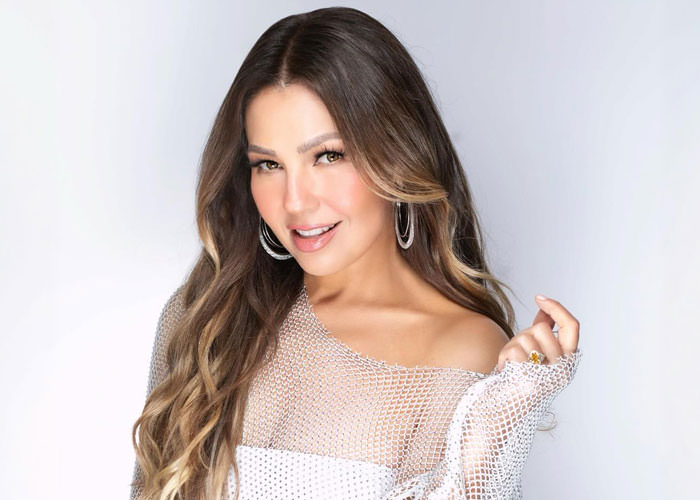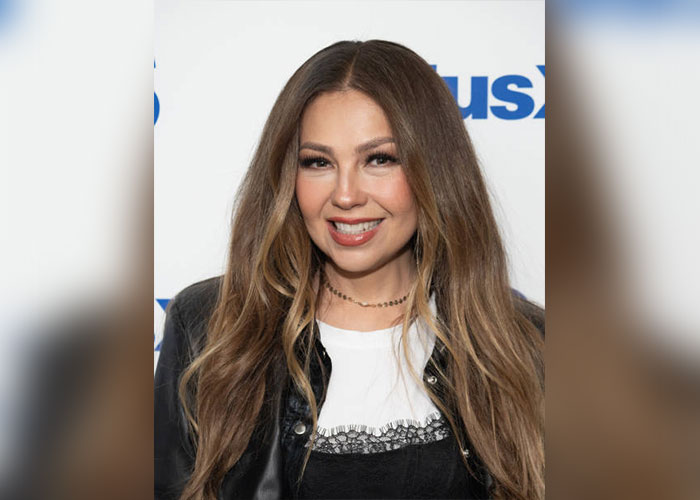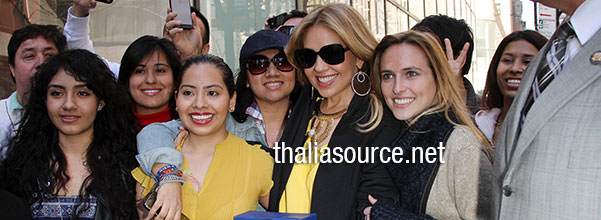We know Thalía as an interpreter of pop music and romantic ballads and it is in those styles that she has managed to build herself as an icon of music in Spanish. But what not many know is that the Mexican diva had her first great love in "rock in first language".
The artist, also recognized for her career as a soap opera actress, was influenced in her youth by groups such as Soda Stereo, Aterciopelados, Hombres G and La Maldita Vecindad. Rebellion came to the life of young Thalía, who at that time was beginning to take her first artistic steps in Timbiriche, when songs like Persiana Americana , Pachuco , When you are big or Florecita rockera were part of the mixtape cassettes that she recorded directly from the radio.
The artist, also recognized for her career as a soap opera actress, was influenced in her youth by groups such as Soda Stereo, Aterciopelados, Hombres G and La Maldita Vecindad. Rebellion came to the life of young Thalía, who at that time was beginning to take her first artistic steps in Timbiriche, when songs like Persiana Americana, Pachuco, Cuando Seas Grande or Florecita Rockera were part of the mixtape cassettes that she recorded directly from the radio.
This love story for Latin rock is what Thalía tells in the documentary series Thalía's Mixtape: El Soundtrack de Mi Vida and on the album Thalía's Mixtape.
The artist got together with the idols of her youth to interview them and record new versions of those songs that marked her life. Thus, Thalía spoke with veterans such as Charly Alberti (Soda Stereo), David Summers (Hombres G), Roco Pachukote (Maldita Vecindad) and also other young artists on the scene whom she included in the recordings.
The album includes the versions of Thalía for Devuélveme a Mi Chica (Hombres G), Pachuco (La Maldita Vecindad and Los Hijos del Quinto Patio), Florecita Rockera (Aterciopelados), Persiana Americana (Soda Stereo), Me Cusesta Tanto Olvidarte (Mecano), Rayando el Sol (Maná), Para No Verte Más (La Mosca Tse Tse), Cuando Seas Grande (Miguel Mateos), La Muralla Verde (Los Enanitos Verdes) and Lucha de Gigantes (Nacha Pop).
The three-part series will premiere on the Paramount+ service on May 2. Meanwhile, the album will be released on digital platforms this April 28. About this multiplatform production and what rock in Spanish means in her life, Thalía spoke with La Nación.
After watching the episodes and listening to some previews of the album, you can tell that this is a very ambitious project...
Exactly, it is a very ambitious project, a project made of love. It is a project that does not belong to Thalía but to Ariadna Thalía, the adolescent in search of her idols. I'm very excited because this mixtape is the soundtrack of my life. It will guide us through the evolution of music from the gramophone to the Web3, but hand in hand with these iconic rock in Spanish talents.
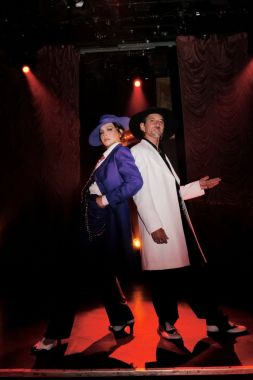
UHQ
Why did you choose these artists and these songs to tell the history of rock in Spanish?
We all have a person who marked us in life and rarely does one have the opportunity to look them in the eye and thank them. So, in tribute to all the fans of this age, I embody all of them to thank these heroes.
With which of all of them did you feel more nervous when interviewing them?
With everyone. But definitely with David Summers of Hombres G. I cringed, still cringes when he texts me or something. Also with Charly Alberti, because it was as if he had come out of the cutout of my notebooks as a teenager and there I was in front of Charly from Soda Stereo. It was as if they had come out of my dreams.
What do you think the rock of the 80s and 90s has to have marked Latin music like this?
The artists went against a system, looking for freedom of expression, to be authentic. It was a lot of struggle not to leave his flag. It is important to me that this three-episode series and this multiplatform project is the bridge for these titans to connect with the new generations, which is why I invited young people who have promoted their careers from digital platforms to amplify the message and show where the foundations of music come from.
The arrangements of the songs are very interesting both in the instrumentation and in the interpretation of the voices. However, they do not lose their essence...
It was an interesting and very demanding job because the original DNA of the songs had to be respected and strengthened, that is, that magic could not be altered. But obviously the work we achieved with the music producer was precisely that: injecting it with this new exposure.
The episodes take a historical tour, where you talks about fashion, culture and historical movements. What was the point of tying it all up?
Before everything was an effort. Recording a song on cassette was quite an odyssey, it is good that the new generations see this evolution of everything that was lived and everything that they now have at hand. It is important that through the animation, the children see what has happened.
Come back to television, but on a different platform...
Oh, I love it, I love it! You know that it is something that is part of me being on the screens, also making music or acting. In the end it is expressing something. I like to entertain, I am a singer, actress and businesswoman who entertain. I give my best in each of my projects, so coming back as a creator and producer, as part of a movement called Mixtape, thanking our idols, is something that moves me.
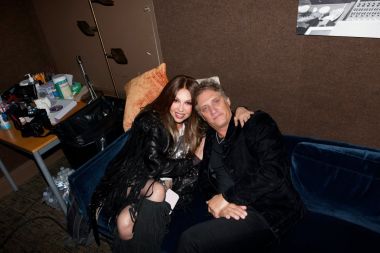
UHQ





